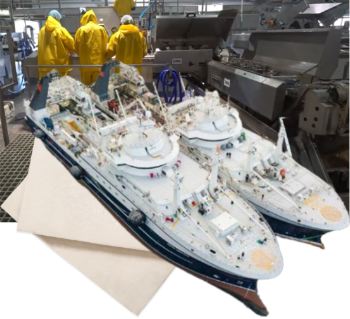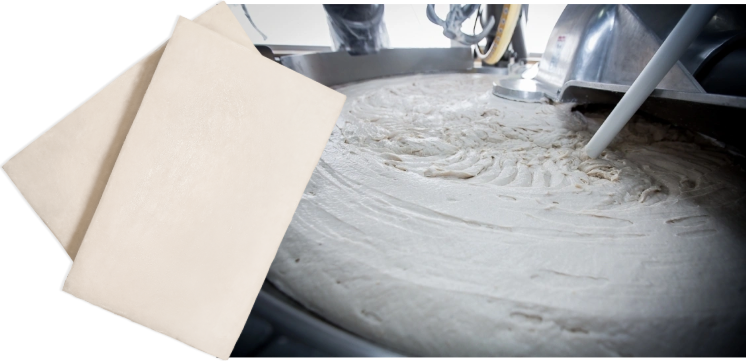|

Russia has established itself as one of the world's leading producers of pollock and surimi paste
Russian Surimi Production Set for Expansion
 RUSSIAN FEDERATION
RUSSIAN FEDERATION
Friday, February 14, 2025, 09:00 (GMT + 9)
Russia's surimi production, a key ingredient in products like imitation crab meat, is projected to reach 85,000 tons in 2025, up from 70,800 tons in 2024, according to the All-Russia Association of Fishing Industry, Businessmen and Exporters (VARPE), as reported by Interfax. A key driver of this growth is the potential opening of the Indian market.
Recent developments have paved the way for Russian surimi exports to India. Indian authorities have reduced the basic customs duty on frozen fish paste (surimi) from 30% to 5%. Furthermore, Russia and India finalized export certificate requirements late last year, effectively opening the Indian market to Russian seafood products.

"This is excellent news for Russian fishermen, who are actively expanding surimi production," stated VARPE President German Zverev. "Last year, we produced 70,800 tons of pollock surimi, and our target for this year is at least 85,000 tons. In the fresh wild fish surimi segment, our primary competitor is the US. However, our shorter shipping routes to India provide a significant advantage. We are confident in our ability to capture a substantial share of this market, building on our success in establishing market leadership in China and South Korea."
 Russia FIS seafood Media.png) VARPE's research indicates that increased at-sea and onshore pollock processing capacity will drive Russia's surimi production growth. With domestic demand already saturated, the association projects that Russian seafood companies will be capable of exporting up to 80,000 tons of surimi annually by 2030. VARPE's research indicates that increased at-sea and onshore pollock processing capacity will drive Russia's surimi production growth. With domestic demand already saturated, the association projects that Russian seafood companies will be capable of exporting up to 80,000 tons of surimi annually by 2030.
Beyond surimi, Russian seafood companies are exploring opportunities to supply other products to the Indian market. "India is a major seafood processing hub, and we can provide high-quality wild-caught raw materials," Zverev explained. "We see potential for exports of frozen pollock, cod, salmon, and pelagic species. Given India's growing demand for premium seafood, we also see opportunities for wild-caught shrimp, squid, and scallops. Fishmeal and other byproducts are also promising export categories."
Despite the favorable developments, Zverev acknowledged that penetrating the Indian market will not be without its challenges. While the surimi import duty reduction applies to all suppliers, competing nations, particularly Norway and Iceland, benefit from existing customs preferences.
[email protected]
www.seafood.media
|



